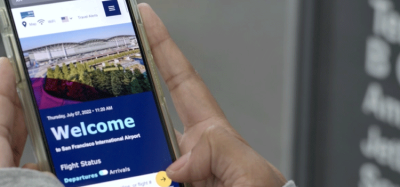Engaging the next aviation generation
- Like
- Digg
- Del
- Tumblr
- VKontakte
- Buffer
- Love This
- Odnoklassniki
- Meneame
- Blogger
- Amazon
- Yahoo Mail
- Gmail
- AOL
- Newsvine
- HackerNews
- Evernote
- MySpace
- Mail.ru
- Viadeo
- Line
- Comments
- Yummly
- SMS
- Viber
- Telegram
- Subscribe
- Skype
- Facebook Messenger
- Kakao
- LiveJournal
- Yammer
- Edgar
- Fintel
- Mix
- Instapaper
- Copy Link
Posted: 9 November 2024 | Dr Roxani Athousaki | No comments yet
At the V4+ Airports Associations’ Women Innovation Days (WIND) conference in Lake Bohinj, Slovenia, International Airport Review’s Editorial Assistant Emily Budgen caught up with Dr Roxani Athousaki, the Assistant Course Director and Interim Course Director at Coventry University, Wroclaw, to consider Gen-Z training schemes, the importance of industry links and how airports can engage the next generation.


What was your route into the aviation/airport sector?
My journey into aviation has been comprehensive. I obtained a degree in Aerospace Engineering from Embry-Riddle Aeronautical University in Daytona Beach. After graduating, I pursued a management path, earning a Master’s degree in International Business and Management from Westminster University in London. My thesis focused on the liberalisation of the airline industry, which led to recruitment by Virgin Atlantic. Subsequently, I gained experience in the travel and tourism industry, undertook consulting roles, and in 2012, joined Coventry University as an Assistant Lecturer. I completed my PhD with Coventry University and progressed to the role of Assistant Professor and Course Director. Throughout my academic career, I have been privileged to be part of a team that has developed hundreds of aviation professionals.
You’ve talked about the value of industry links for students in the UK. How should companies get involved in the airport/aviation academic sector and at what age should airports start reaching out to students?
Aviation students are highly motivated from day one! They eagerly volunteer with aviation stakeholders and continuously seek opportunities throughout their university journey. The industry needs to be open-minded and provide opportunities as early as possible during their education. Remember, these students are passionate about aviation and have chosen to invest in studying it. They need more opportunities for summer jobs and internships. Although the aviation market in the UK is more receptive to recruiting students than the European market, I firmly believe there is still much progress to be made in this area.
You taught Generation Z and will soon be teaching Generation Alpha. What matters most to these students when looking for a career? What should airports really be emphasising in their roles when they are trying to recruit the next generation?
Teaching Generation Z and soon Generation Alpha, it is evident that their career priorities differ significantly from those of previous generations. Both value purpose-driven work and want their efforts to have a positive impact on the world, with a strong emphasis on environmental concerns. Airports should highlight their contributions to sustainability, innovation and community engagement.
These generations also prioritise a healthy work-life balance, making flexible working hours, remote work options and support for mental wellbeing, highly attractive. Opportunities for growth and continuous learning are essential. Airports should showcase their training programmes, mentorship opportunities and clear career progression paths.
As digital natives, Generation Z and Alpha value technology and innovation. Airports should emphasise their use of cutting-edge technology, opportunities to work on innovative projects, and involvement in the industry’s digital transformation. A diverse and inclusive work environment is crucial for these students. Airports should demonstrate their commitment to diversity, equity and inclusion, fostering a welcoming and supportive workplace for all.
What skillsets will they be bringing to the airport sector?
Drawing upon skills such as proficiency in social media and digital marketing, data literacy, adaptability, technological competence and environmental awareness, Generation Z and Generation Alpha possess the strong capabilities required to advance and develop the airport sector. Their proficiency in these areas equips them to make significant contributions to the sector’s evolution and growth.
Are aviation degrees and training programmes keeping up with the rate of change in the aviation sector? Does it prepare them adequately?
Aviation curriculums vary significantly. At Coventry University, we emphasise a holistic understanding of the aviation sector. We strive to listen to industry needs while also staying a step ahead by understanding the needs of Generation Z and Alpha. What is the best way for them to learn? What will keep them engaged? Traditional teaching and assessment methods are not as effective for aviation programmes. What works well are mobility in the form of field trips and attending industry conferences and exhibitions, networking, case study analysis, simulations and any approach that promotes interactive and stimulating learning.
Is the airport industry doing enough to attract a diverse workforce?
The airport industry faces several human resources challenges. For instance, many airport roles require security clearance, involving thorough and time-consuming background checks and vetting processes. This can be a significant barrier for international students. Airport operations are tightly regulated, necessitating strict adherence to safety and operational standards, which often involve ongoing training and compliance checks.
Language requirements are also crucial, depending on the role and location, to ensure effective communication with passengers and colleagues. Leading international airports excel in attracting and retaining a diverse workforce. However, regional airports heavily rely on local workforce availability. In my opinion, there is substantial room for improvement in this area, particularly through closer collaboration between airports and academia.
What are your students’ perceptions of the airport sector by the time they leave your course?
Upon completing their course, students’ perceptions are shaped by a blend of academic knowledge, practical experiences and industry insights gained during their studies. Many students view airports as the safe haven of the aviation industry. They also acknowledge the airport sector’s pivotal role in global connectivity, transportation and economic development. Understanding the stringent regulatory framework governing airport operations, including safety standards and environmental regulations, is crucial. They appreciate the diverse career paths available within the sector, encompassing operational roles, management, engineering and customer service.
What is your advice for airports when looking to attract, train and retain the younger generation?
To effectively attract, train and retain the younger generation, airports should implement strategies that position them as desirable employers within the competitive aviation industry. This involves creating clear pathways for career development and ongoing learning. Establish structured training programmes, mentorship opportunities and support for obtaining industry-specific certifications or qualifications. Recognise the importance of work-life balance by offering flexible working hours, remote work options where possible, and policies that support mental well-being. Cultivate an inclusive workplace culture that values diversity in all its aspects. Actively recruit from diverse backgrounds and ensure equal opportunities for career advancement. Collaborate with universities and educational institutions to align training programmes with industry standards. Provide internships, apprenticeships and educational partnerships that offer practical experience and pathways into careers at airports.




















